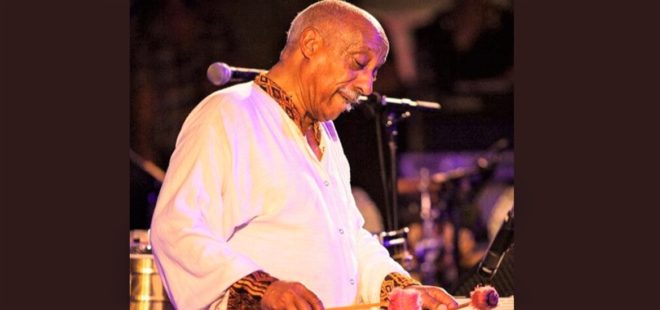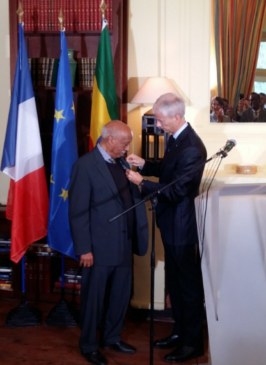New sound of soul legend leaves behind former glories
 Addis Ababa, Ethiopia – Makeda Belay, 36, was puzzled while hearing a radio advert for a music album on the eve of the new Ethiopian year. It was for internationally renowned singer Aster Aweke’s latest album, Ewodehalew (I Love You), released in time for the new year festivities, a common policy among Ethiopian artists.
Addis Ababa, Ethiopia – Makeda Belay, 36, was puzzled while hearing a radio advert for a music album on the eve of the new Ethiopian year. It was for internationally renowned singer Aster Aweke’s latest album, Ewodehalew (I Love You), released in time for the new year festivities, a common policy among Ethiopian artists.
Initially she was confused that another Aster was releasing an album, but the cover confirmed it was by her, Aster Aweke. She tried to compose herself on realizing that she had not heard any of the new songs, from an artist she has devoted herself to for the past twenty years. She grew up listening to Aster’s sensual songs, through which she understood the pain, ecstasy and strength of love. “My love life has been carried out through her wonderful songs, which are still active in my heart,†she says.
The new album has created a certain buzz among her audience. It is her fourth album since moving back to Ethiopia ten years ago. Makeda, who has followed her for twenty years, recognizes a musical transition vividly apparent in the new album. “It’s the essence of what she is trying to do,†she says. Many might be amazed with the prolific output of the artist, two albums in five years belies her previous output. Makeda, however, wants to focus on what the artist is doing. “It’s simply an unconventional shift from standard rhythms, to herky-jerky ones,†she adds.
Aster’s musical career began in the 1970s, as a girl playing music in the Hager Fikir Theatre, one of the oldest in Africa. With a sound educational background she became the new sensation of the music industry, following Buzinesh Bekele, one of the first well-known Ethiopian female singers. She left for the US in 1981, settling in Los Angeles where she established herself as a singer of prodigious talent. In the late 80s she was discovered by the London-based independent label Triple Earth, which marked her entrance into the world music scene. Shortly afterwards she secured a recording contract with Sony Music Entertainment, releasing two major albums, Aster and Kabu (Sacred rock) on their Columbia label. Kabu reached number one on the CMS New World Music Chart, remaining there for four weeks, and was in the top ten on Billboard’s World Music Chart for ten weeks.
For many, Aster was the first Ethiopian artist to break make a through on the international music scene. Although Ethiopian music gained worldwide exposure through the Ethiopiques series, Aster and a few other musicians played important roles. More recently Mahmoud Ahmed was nominated in the Africa category at the BBC Radio 3 Awards for world music in 2007. Read more



